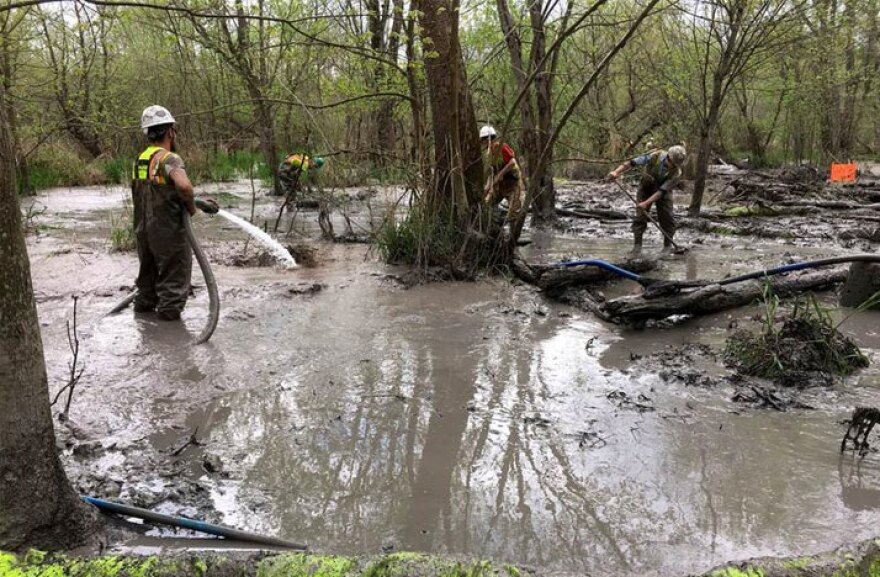Earlier this month, for the second time in less than a year, the Rover Pipeline project leaked drilling mud at its construction site near the Tuscawaras River in Stark County.
As a second of two pipes at the site was being installed, about 146,000 gallons of mud disappeared down a drilling hole instead of coming back up. The mud remains unaccounted for.
The Ohio EPA wants drilling shut down until a full investigation can be completed. But Rover hasn’t agreed to that.
So, Friday, the agency asked the Federal Energy Regulatory Commission for help.
“Ohio EPA is in continual communications with not only FERC, but Rover, and we are keeping a close eye on the project,” says James Lee, a spokesperson for the Ohio EPA. “But ultimately it is FERC that has the authority to order a halt, even a temporary halt to the drilling.”
Last week, Rover pipeline owner Energy Transfer Partners issued a statement saying Rover had not experienced an inadvertent return or spill while installing the second line under the Tuscarawas River. Energy Transfer Partners says they continue to work in coordination with FERC on all the remaining drilling.
In April 2017, another 2 million gallons of drilling mud was spilled into wetlands while the first pipe was being installed at the Stark location. The state has sued Rover for $2.3 million over the cleanup costs from that spill, after the pipeline’s owners refused to pay state fines.
FERC recently announced plans to review its pipeline policies for the first time since 1999.





